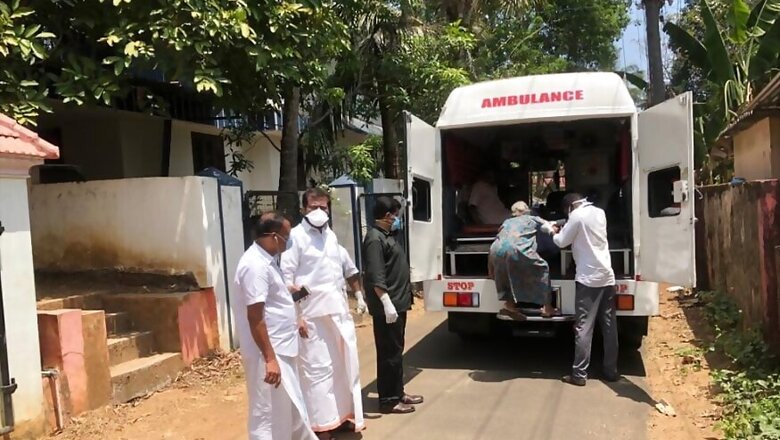
views
New Delhi: Kerala is going to begin sentinel surveillance of Covid-19 cases in the state to check whether the transmission of the disease has progressed to the general community, top officials from the state confirmed to News18. The sentinel surveillance is likely to be carried out in all 14 districts in the state using the rapid antibody test. This will make Kerala the first state in the country to go ahead with sentinel surveillance.
Sentinel surveillance is usually carried out to check the prevalence of a disease in a community or population. According to the World Health Organisation (WHO), a sentinel surveillance system is used when high-quality data is needed about a particular disease that cannot be obtained through a passive system.
The chief objective of sentinel surveillance would be to see whether other than imported cases and local transmission, the infection has progressed in the general community, the top state official said, asking not to be named.
“Once we get a stockpile of antibody tests we will go ahead with sentinel surveillance. A cross-section of populations across districts will be selected for the surveillance. This will give us leads on those who don't have a history of travel at all,” the top official said.
The surveillance across districts will be based on the inflow of travellers who have gone abroad, quantum of primary and secondary contacts, density of population, vulnerability in terms of demography and morbidity, a senior adviser to the state government said.
Rapid antibody tests or serological tests are blood-based tests and are used to identify if people have been exposed to a particular pathogen, according to a fact-sheet of John Hopkins Bloomberg School of Public Health. During outbreaks of viral infections, these tests are used to examine if a patient is showing an immune response to a pathogen.
“These are provisional tests and will not be used to confirm Covid-19 cases. There are complications too in using rapid tests as it takes 8-10 days for antibodies to develop, but it is one kind of filtering and it is a good measure to follow an evidence based strategy,” the senior adviser added.
As on Friday night, Kerala had reported a total of 295 cases since January. Of these, 42 have been discharged and 251 are admitted.
On Thursday, News18.com had reported that the Indian Council of Medical Research (ICMR) had issued an interim advisory which stated that populations in hotspot areas can be tested using rapid antibody tests. It said that those who test positive with an antibody test have to be confirmed as Covid-19 positive using the RT-PCR (Reverse transcription polymerase chain reaction) test after taking oral and nasal swabs.
Even if a person tested negative after an antibody test, quarantine at home has been advised. ICMR pulled down the interim advisory late on Thursday and put out a list of validated antibody testing kits. During the daily government briefing on Friday, Manoj Murhekar, Director of National Institute of Epidemiology said ICMR will put out guidelines on antibody tests on Saturday.




















Comments
0 comment